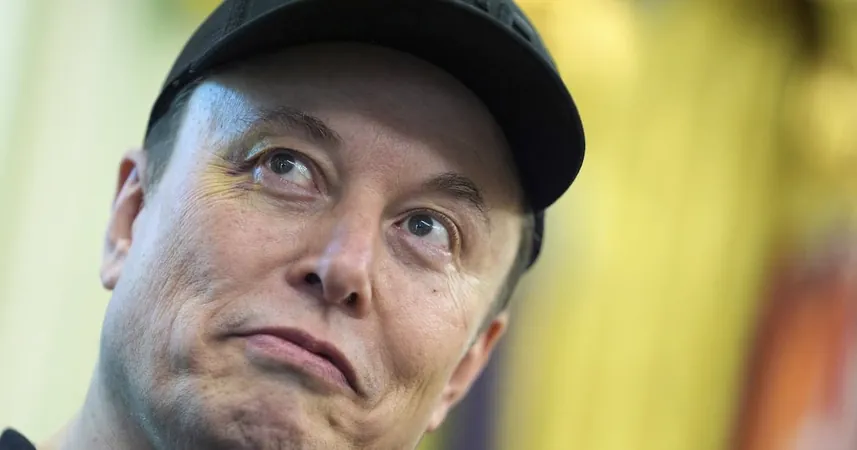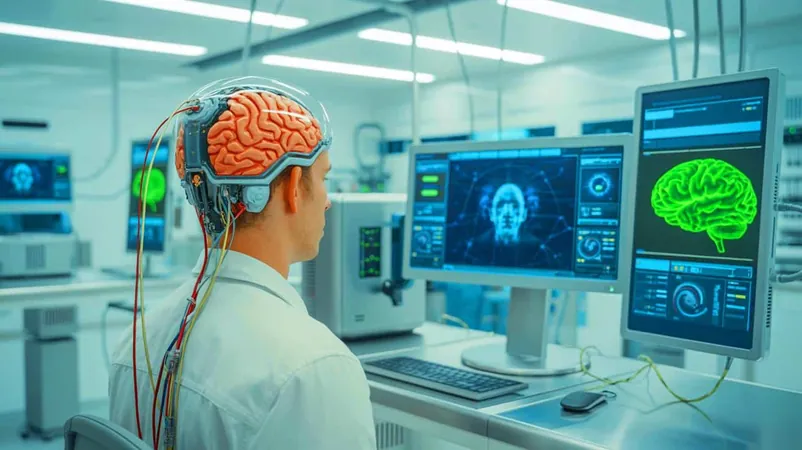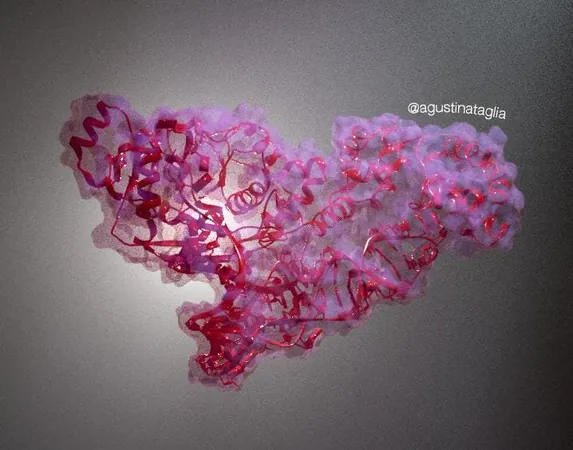
Elon Musk's Neuralink Trial Sparks Ethical Firestorm in Canada!
2025-09-19
Author: Charlotte
TORONTO — A controversial clinical trial at a Toronto hospital involving Elon Musk's Neuralink has ignited fierce debates among doctors and bioethicists.
This month, the University Health Network announced that two Canadian patients with quadriplegia have received Neuralink brain implants. The trial aims to assess the safety and effectiveness of this groundbreaking wireless technology. While supporters celebrate the potential for enhanced autonomy for paralyzed individuals, many are alarmed by the ethical implications of collaborating with Musk, especially following his significant cuts to essential government health programs.
Dr. Raghu Venugopal, an emergency physician at the University Health Network, voiced strong opposition on social media, stating that Canadian doctors should not collaborate with Musk due to his actions that reportedly jeopardized U.S. foreign aid funding. A study cited in The Lancet revealed that these cuts could lead to an estimated 14 million deaths over the next five years.
Musk's influence on U.S. government funding decisions included the slashing of vital programs through USAID, which provides critical health services globally, from HIV treatment to malaria eradication. Over the past two decades, USAID programs saved an astonishing 90 million lives.
Kerry Bowman, a bioethicist from the University of Toronto, articulated his deep discomfort with the partnership, emphasizing that Musk's detrimental role in global health should have been a significant consideration.
Despite the ethical concerns, University Health Network’s executive vice president, Brad Wouters, defended the collaboration, asserting that it serves the best interest of patients and is compliant with regulatory approvals.
The trial marks a pivotal moment, making UHN the first medical institution outside the U.S. allowed to recruit patients for Neuralink’s study on brain implants. Two patients underwent procedures where ultra-thin electrode threads were inserted into their brains, reportedly enabling them to control a computer cursor with thoughts just minutes later.
However, Bowman raised alarms over Neuralink's transparency regarding research practices, exposing a worrying lack of information about risks associated with the invasive procedure, including potential device degradation and infection.
There are concerns related to Neuralink acting more like a corporate entity rather than a medical research organization, relying on promotional videos rather than sharing comprehensive research results. The limited available information includes a past article authored by Musk himself.
The debate intensifies further given other biotech companies, such as Synchron and China's Neuracle Neuroscience, that are also developing brain-computer interfaces. Critics wonder why the University Health Network didn’t partner with these alternatives.
Neuroethics expert Judy Illes emphasized that ethical research should remain distinct from global health policy issues, suggesting that complexities shouldn’t tarnish the potential benefits of Neuralink’s advances.
Ethicist Arthur Schafer weighed in, stating the ultimate obligation of medical professionals is to protect patient welfare. He noted that while Musk's actions raise ethical concerns, if Neuralink's technology proves safe and effective, it should not be dismissed outright.
As the trial progresses, the ongoing ethical debate continues to highlight the fine line between innovation and moral responsibility in healthcare. This trial is not just a leap forward in technology; it’s a litmus test for the ethical landscapes shaping the future of medicine.









 Brasil (PT)
Brasil (PT)
 Canada (EN)
Canada (EN)
 Chile (ES)
Chile (ES)
 Česko (CS)
Česko (CS)
 대한민국 (KO)
대한민국 (KO)
 España (ES)
España (ES)
 France (FR)
France (FR)
 Hong Kong (EN)
Hong Kong (EN)
 Italia (IT)
Italia (IT)
 日本 (JA)
日本 (JA)
 Magyarország (HU)
Magyarország (HU)
 Norge (NO)
Norge (NO)
 Polska (PL)
Polska (PL)
 Schweiz (DE)
Schweiz (DE)
 Singapore (EN)
Singapore (EN)
 Sverige (SV)
Sverige (SV)
 Suomi (FI)
Suomi (FI)
 Türkiye (TR)
Türkiye (TR)
 الإمارات العربية المتحدة (AR)
الإمارات العربية المتحدة (AR)